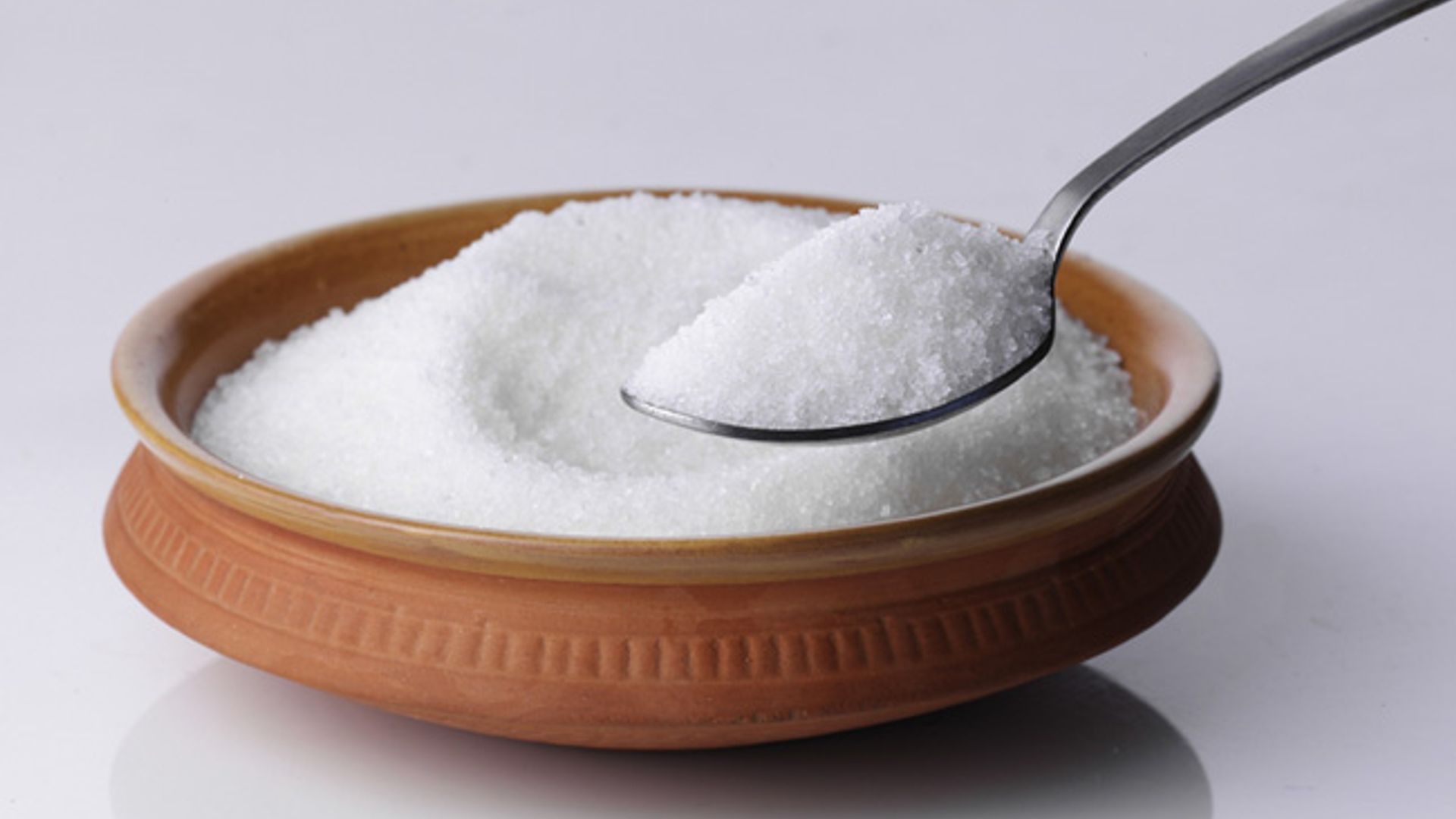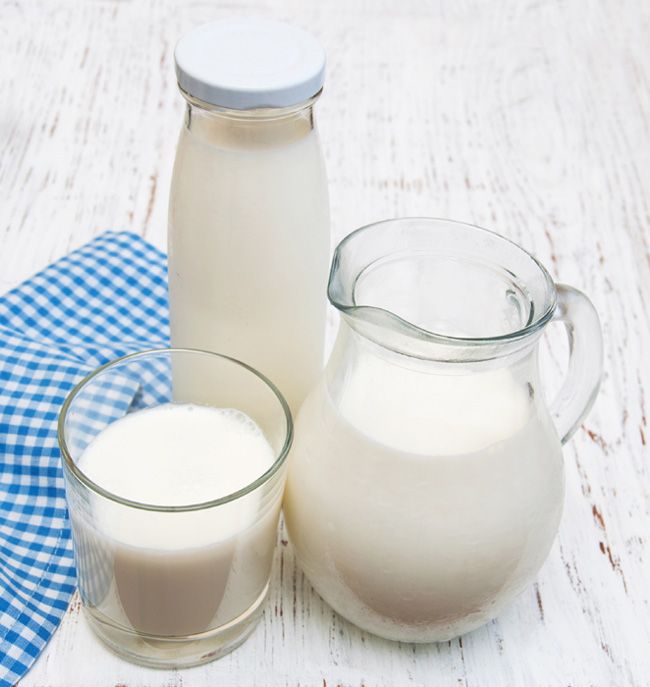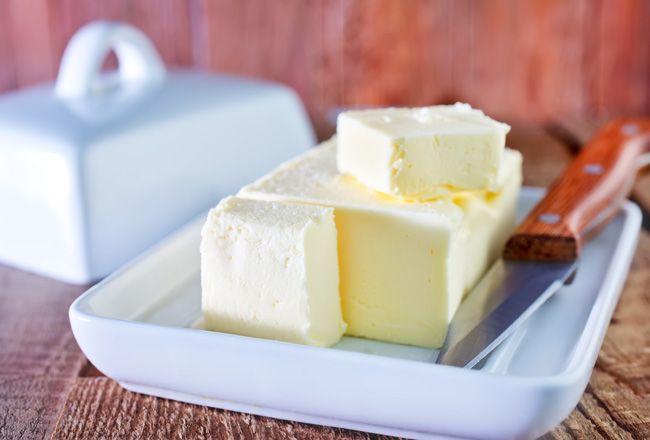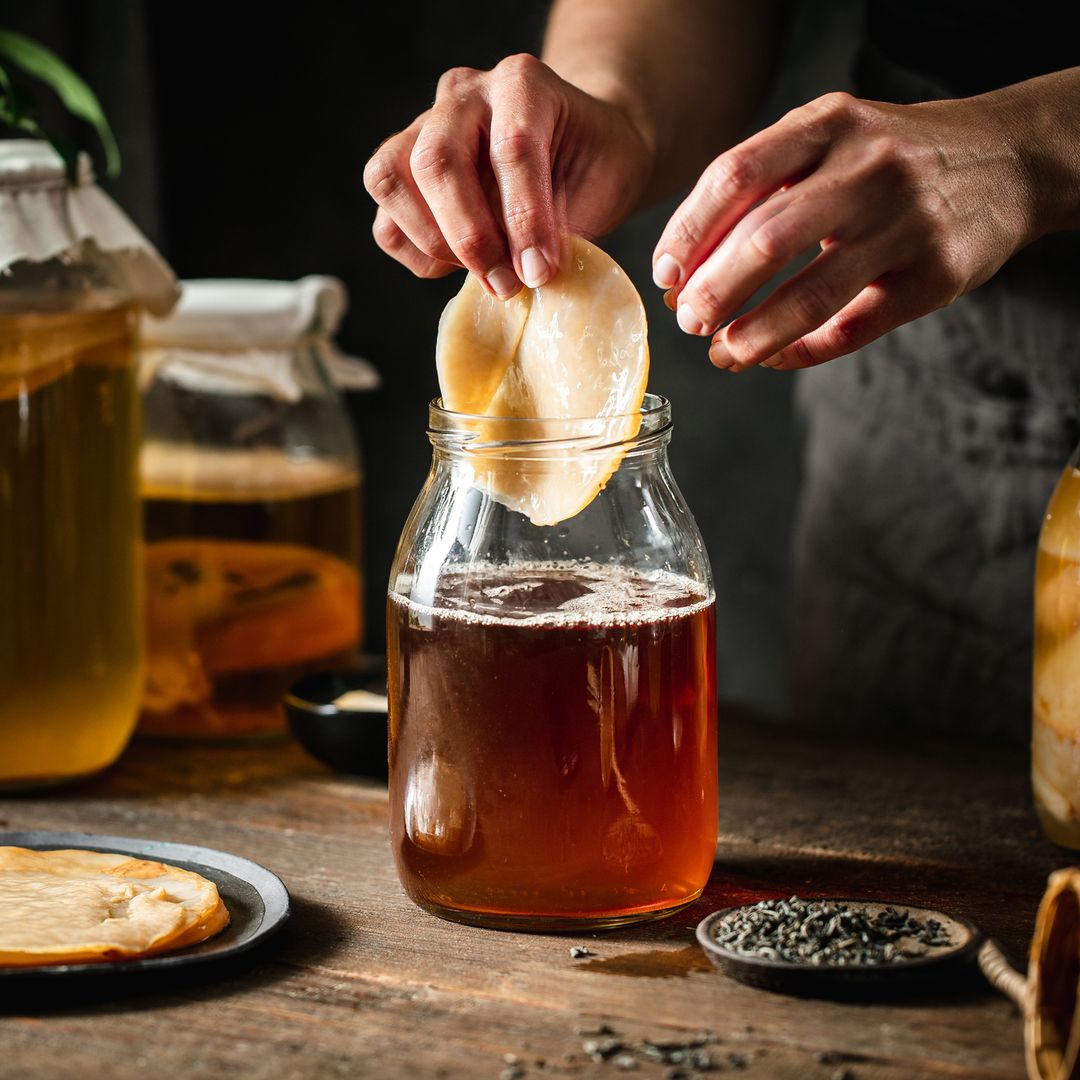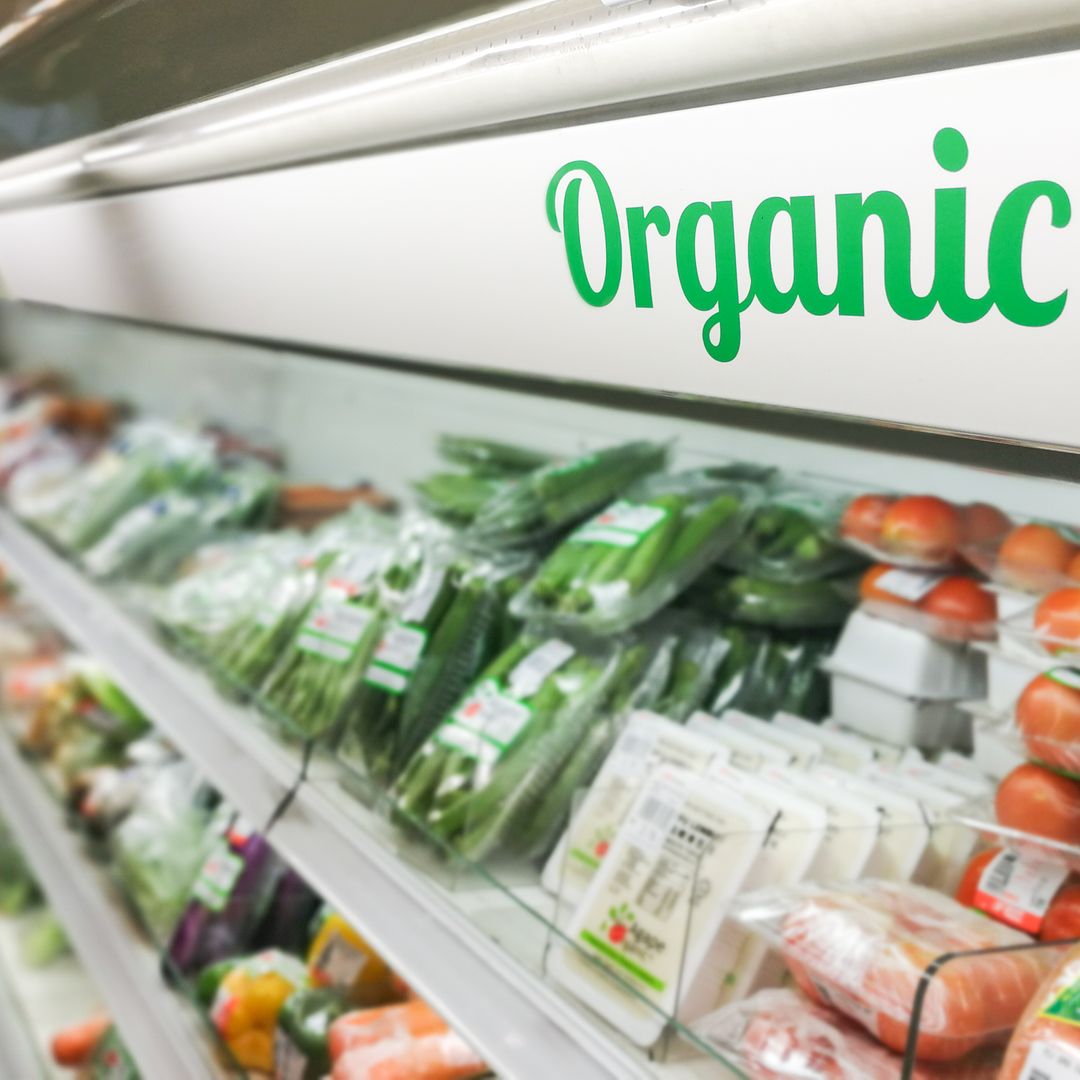Full-fat milk or skimmed milk? Sugar or sweetener? Low fat or low carbs? Making healthy choices when it comes to our diet doesn't get any easier with the constant flow of conflicting and often confusing messages we get every day. We asked a panel of top health and nutrition experts to set the record straight. What they told us may come as a surprise...
The fat in whole milk helps us absorb certain vitamins, says Katy Mason, Nutritionist at NutriCentreCANNED FOOD VS. FROZEN FOOD "Usually I would suggest frozen food rather than canned, when fresh food is not an option. Canned food can contain heavy metals like aluminum, cadmium, lead and mercury. It is particularly dangerous when it comes to canned fish, tomatoes or other acidic foods that can enhance those heavy metals leaking in food," says Michela Vagnini, Nutritionist at Nature's Plus. "Very often fresh food spends up to a few weeks with producers, wholesalers and retailers, until customers can buy it. That’s why frozen food can often be as good as fresh, if you are a savvy shopper – just make sure you chose organic products. If you are in a rush and need a quick fix for your dinner, steam or stir fry frozen vegetables to retain key nutrients." SKIMMED MILK VS. WHOLE MILK "For years we have been told that whole milk is a less healthy choice than skimmed milk. Whole milk may contain more fat and therefore seem the unhealthy option. In fact, the fat can actually help us to absorb certain vitamins – such as vitamin A and vitamin D – that are found in (or added to) milk. These vitamins are fat-soluble, so if there are only very small levels of fat in what we are eating, they won't be absorbed as well as they can be when consumed with higher-fat foods," says Katy Mason, Nutritionist at NutriCentre. "On the contrary to popular belief, eating fat is often not the main reason for putting on weight; eating high amounts of sugary foods and starchy foods are more often to blame. Fat helps to make us feel fuller and more satisfied after eating, so we may not actually consume any more calories than when we choose skimmed milk. Drinking full fat milk is therefore not necessarily a less healthy choice than skimmed milk."
Sweeteners have been linked to mood swings and depression, says author of Fat Around The MiddleSWEETENER VS. SUGAR "Sugar is a problem because it can make you gain weight, which increases oestrogen production and creates a hormone imbalance. The more sugar you eat, the more insulin your body releases and the more you crave it – it is a catch 22. Sugar is also "empty calories" – it doesn't give you any nutritional value," explains Dr Marilyn Glenville, the UK's leading Nutritionist and author of Fat Around The Middle. "You may be tempted to substitute sugar with artificial sweeteners in order to cut calories. Don't. If a food or drink is described as "low sugar", "slim-line" or "diet", it will usually contain an artificial sweetener. These sweeteners have been linked to mood swings and depression, and it has been found that people who regularly use artificial sweeteners tend to gain weight because they can slow down the digestive process and increase appetite. If you are really craving something sweet, try adding cinnamon to your natural yoghurt or porridge." PROBIOTIC YOGHURT VS. PROBIOTIC SUPPLEMENT "The bacteria in our bodies outnumber our cells by about 10 to 1. There are both beneficial and harmful bacteria and the ideal balance for our bodies is around 85% good bacteria and 15% bad. The purpose of probiotics is to help to maintain this ratio," says Adrienne Benjamin, Nutritional Therapist at ProVen Probiotics. "Probiotics are not a new concept, as historically mankind has consumed large amounts of probiotics in the form of fermented and cultured foods, which aided food preservation prior to refrigeration. What is new is the use of probiotic supplements. "Whilst fermented foods can provide a wide variety of beneficial bacteria, supplements are developed specifically to support health and clearly list the specific strains contained in the product. Good quality probiotic supplements, such as ProVens' Adult Probiotic 25 Billion (£12.95, provenprobiotics.co.uk), are safe to use and convenient, as they simply need to be taken with any meal as an addition to a healthy diet (which might contain probiotic foods such as yoghurt, kefir and sauerkraut) and not a substitute."
The process of making a fat like butter spreadable changes the essential unsaturated fats contained in the food into trans fatty acidsLOW FAT VS. LOW CARBS "Sugar, rather than fat, is the main substance linked to obesity, as well as diabetes. It can also be addictive, making people want more and more of it; and can be linked to physical poor health problems and also mood and behavioural problems. Closely linked to this food group are those foods high in refined carbohydrates – this means white bread, standard ‘white’ pasta and other foods made with white flour. These refined foods have had the nutrients stripped out of them so provide little in terms of nutritional benefit; and they are also low in fibre, so the carbohydrates they contain are quickly broken down into glucose and absorbed into the bloodstream, having a very similar effect to eating sugar," says Shona Wilkinson, Head Nutritionist at NutriCentre. Sharon Morey, nutritionist at Quest Vitamins, says: "When food companies create low fat food what they normally do is remove the fat and replace it with sweeteners, artificial flavourings and additives to replace the mouth feel and flavour you lose from removing the fat. This may allow them to advertise that it is low fat, which many people like to purchase, but it does not necessarily make the food healthier." MARGARINE VS. BUTTER "Hydrogenated vegetable oil is listed in the ingredients of most margarines and also many fast foods, crisps, biscuits and crackers. The process of hydrogenation (which makes a fat more solid and spreadable) changes the essential unsaturated fats contained in the food into trans fatty acids – linked to increased rate of heart attack. For this reason, I recommend using butter in moderation," says Dr Marilyn Glenville, the UK's leading Nutritionist. MULTIVITAMINS VS. INDIVIDUAL VITAMINS "It depends on what you are dealing with. Usually, multivitamins are good for general wellbeing, energy and hydration. If you choose a good quality supplement, like Nature's Plus Source of Life Gold, you can be sure that not only your levels of Vitamins (B, C, D) and Amino Acids are sufficient but you are also supporting your gut with probiotics," comments Michela Vagnini, Nutritionist at Nature's Plus. "However, I choose single vitamins and minerals when I am following a specific protocol – it makes it possible to address an exact nutritional deficiency. Have your blood test first and then discuss your vitamin and mineral levels it with your doctor or nutritionist, as some of the supplements – unless in deficiency – can actually cause harm. (Iron, for example)." BREAKFAST VS. BRUNCH "If you were to go 6 to 9 hours during the day without eating you would be feeling very hungry but if you think about it, this is what you do during the night. If you don't have breakfast then this 'fast' may continue for several hours longer," says Cassandra Barns, Nutritionist at NutriCentre. "Although this rest from food gives your digestion a well-deserved rest, delaying food for so long may lead to overeating when you do decide to eat and cause you to choose sugary foods instead of more balanced options to give you that instant energy hit. "You may also find you play 'catch up' with your calories leaving you eating far more than you should late at night, when it is more likely to be stored as fat then used for energy. "Remember - research shows that people who eat breakfast are more likely to maintain a healthy weight than those who don't. The brain in particular may perform better with the instant source of energy it gets from food (eating), so if you want to be working at your full potential then eat breakfast!"
